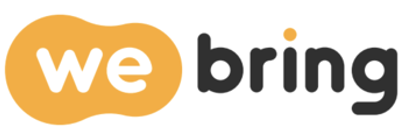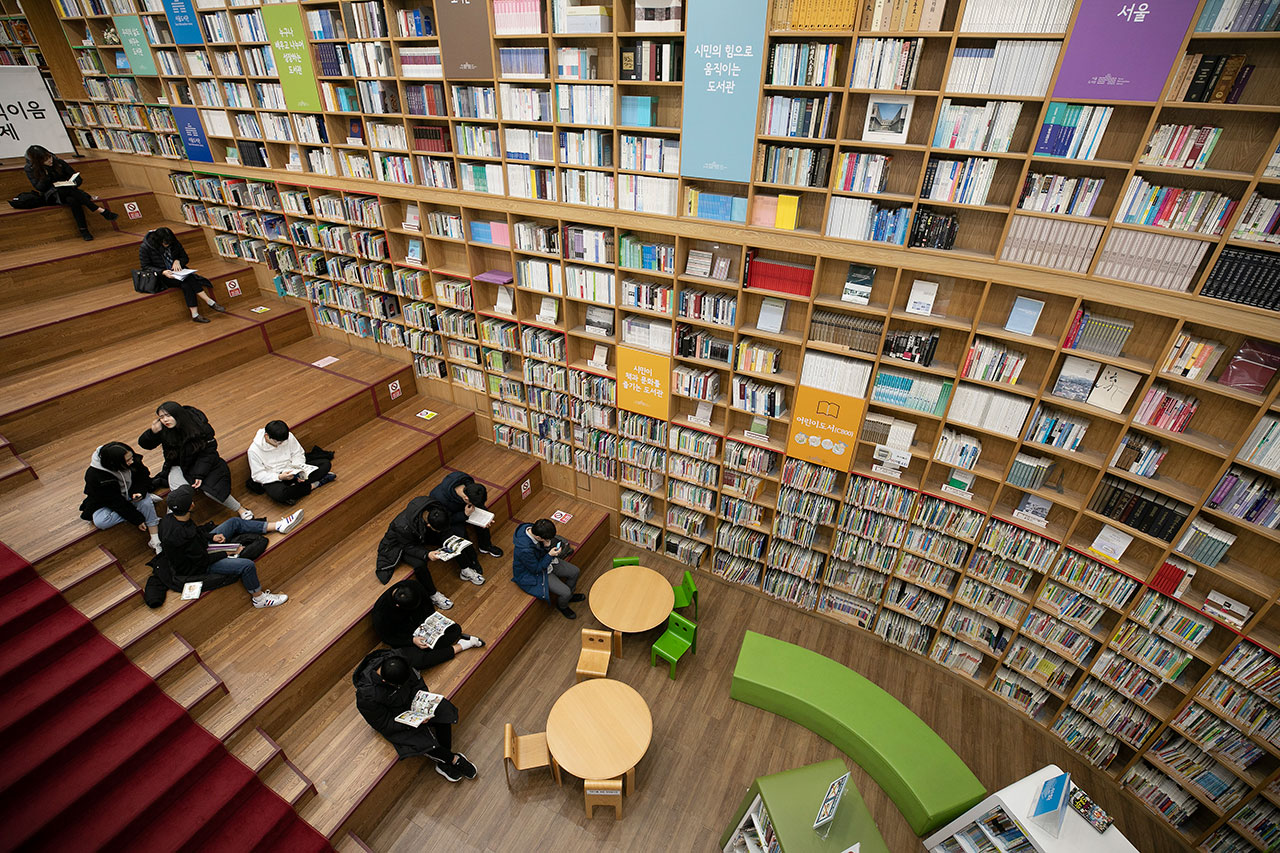Academics are undoubtedly the most crucial aspect of studying abroad. However, purchasing brand new textbooks and reference materials for every course can be quite costly—not to mention the lack of space to store all those books. Fortunately, Korean universities offer well-equipped libraries, easy access to a vast array of online resources, and cost-effective alternatives such as second-hand bookstores and e-books. In this post, we’ll break down how international students can save on textbook expenses by effectively utilizing the campus library, discovering tips for reducing the cost of study abroad textbooks, and making smart use of e-books and second-hand materials.
1) Features of University Libraries
University libraries in Korea go beyond simply lending and reading books; they also offer facilities such as study rooms, computer labs, and lounges. From academic research materials to novels, magazines, and thesis databases, the range is vast. For international students, borrowing textbooks or accessing academic journals via online research databases can significantly reduce costs without needing to make purchases.
Some university libraries even operate 24-hour reading rooms for late-night study sessions and offer amenities like lockers, rest areas, and cafes. Entry usually requires a student ID card (or a mobile student ID), which is also needed for book borrowing. Be careful not to lose it!
2) Library Usage Tips
Understand the Borrowing Rules
Each university may have different borrowing limits and durations for undergraduates, graduate students, and international students. For instance, undergrads may be allowed “five books for two weeks,” while graduate students may borrow “ten books for a month.” Knowing the rules, such as how to renew, reserve, or compensate for lost books, will make your library experience smoother.
Electronic Resources and Databases
Many libraries subscribe to premium academic databases like Elsevier and JSTOR, as well as e-book services. Students can access these for free, making it possible to read academic journals and English-language articles without incurring extra costs. Learn which databases are available through the library website or help desk, then connect via VPN or school Wi-Fi to search papers and articles effectively.
Study Room Reservations
If you’re working on a group project or conducting a study meeting, you can reserve a small study room in the library. Reservations are typically made via the library’s website or app, and you can use the room for 2 to 3 hours at a time. International students can gather their teammates in these rooms for English-Korean mix discussions, utilizing large monitors or whiteboards to share and organize ideas collaboratively.
3) How to Save on Textbook Purchases
New textbooks can be especially expensive for international students—importing them from your home country is difficult and buying original versions in Korea can be challenging. Here are some ways to cut down on costs:
- Used bookstores and online platforms: Around university districts like Seoul National Univ. of Education Station and Sinchon, there are second-hand bookstores, and online markets like Aladin Used, Yes24 Used, and Danggeun Market offer books at a fraction of the cost.
- Buying from senior students: Department bulletin boards or community groups often have listings that say “Selling textbook for this course.” Buying directly from seniors allows you to save a lot on course materials.
- Library book requests: If a required textbook is not available in the library, some schools allow students to request the library to purchase and stock the book. If it’s an expensive title, this option saves you the purchase cost while giving you access to the book via loan.

4) Using E-books and PDFs
Some courses offer electronic versions of textbooks, which are far cheaper than printed ones—especially via platforms like Amazon Kindle. They’re also easier to carry since they don’t add weight to your bag. However, Korean-language textbooks may still be limited in e-book format, so this is more viable for English-language titles.
Professors also sometimes provide lecture materials or article excerpts in PDF format. Legal download sites also offer access to academic documents. Be aware that illegal PDF copies or scans of entire textbooks violate copyright laws. Some print shops offer full copies of exam prep books, but these practices are legally questionable and should be avoided.
5) Tips for Buying Used Textbooks
When buying second-hand books, make sure to check the condition—look for notes, tears, or page discoloration. Underlines and comments from former students can be helpful, but messy annotations may cause distraction. Also, be careful not to accidentally purchase outdated editions; some courses require the most recent updates, so confirm the edition with the syllabus or professor beforehand.
For safer transactions, use secure platforms like Danggeun Market or Bunjang (Lightning Market), or meet in person if possible. Used book prices typically range from 30% to 70% of the original cost, but rare textbooks may be priced higher. Always compare current market prices.
6) External Libraries: Local Libraries and the National Library of Korea
If your university library doesn’t have a certain book, consider checking out local public libraries or the National Library of Korea (located in Banpo, Seoul). This library houses a massive collection, including many foreign language books, making it an invaluable resource for international students. However, borrowing materials can involve complex procedures, so check how to register in advance on their website.
Additionally, you can use online portals like RISS (Research Information Sharing Service) or KISS (Korean studies Information Service System) to search resources across university libraries nationwide. You can request copies or interlibrary loans—there may be a small fee, but it’s a great way to access rare academic materials for research and thesis writing.
7) Study Groups and Sharing Materials
Sharing textbooks or prep books with classmates taking the same course is another way to cut costs. Form a study group and split the cost by each buying a different book and rotating them among members. Some professors offer course materials as PDFs on the LMS platform, completely replacing the need to buy the textbook.
For international students, collaborating with Korean students or peers from other countries can help share resources and reduce individual costs while enhancing language and teamwork skills. If several people buy one book together, be cautious about loss or damage and coordinate schedules, especially during exam season.
8) On-Campus Copy and Print Facilities
Libraries and student centers typically have copy rooms or PC rooms equipped with printers and copy machines. You can print or copy documents for about 40–50 KRW per A4 page, often cheaper than off-campus shops. Printing portions of an e-book or PDF can aid your studies, but excessive copying may violate copyright laws.
It’s generally illegal to copy an entire book inside the library. Korean copyright law prohibits duplication beyond a certain percentage of a publication. Some professors will tell you which parts you are allowed to copy, so always follow these guidelines and use these facilities responsibly.
9) For Graduate Students: Labs and Academic Journals
Graduate students often don’t need to buy every book individually, as their advisors or labs may share resources. Common bookshelves usually contain core textbooks, academic journals, and presentation materials. Ask your advisor or senior, “May I borrow research materials from the lab’s collection?” and be sure to handle everything respectfully and return it promptly.
Additionally, becoming a member of a professional society allows you to purchase journals or conference proceedings at discounted rates and access online archives. International students can benefit from visiting the websites of academic associations (e.g., Korean Economic Association, Linguistic Society of Korea) to take advantage of the resources they offer.
10) Conclusion
For international students studying in Korea, managing textbooks and learning resources efficiently is vital for academic success. Thankfully, Korea has excellent university library systems, second-hand book markets, e-book options, and study groups that help you save money while maintaining study quality. Make full use of library functions and explore alternatives like used bookstores or e-books to reduce your textbook expenses.
Instead of buying all textbooks as new books at the beginning of the semester, evaluate the course content first and buy only what’s truly necessary—or submit purchase requests to the library. Since there are many ways to spend money during your study abroad—like travel and activities—you’ll benefit from saving on textbooks and enjoying a broader range of experiences. With smart use of library resources and second-hand markets, you can reduce tuition burdens and enrich your study-abroad journey in Korea.


WeBring Service : Provides personalized services to foreigners living in Korea
Exclusive offer: Introducing foreign car rental in Korea, WeBring-SoCar

